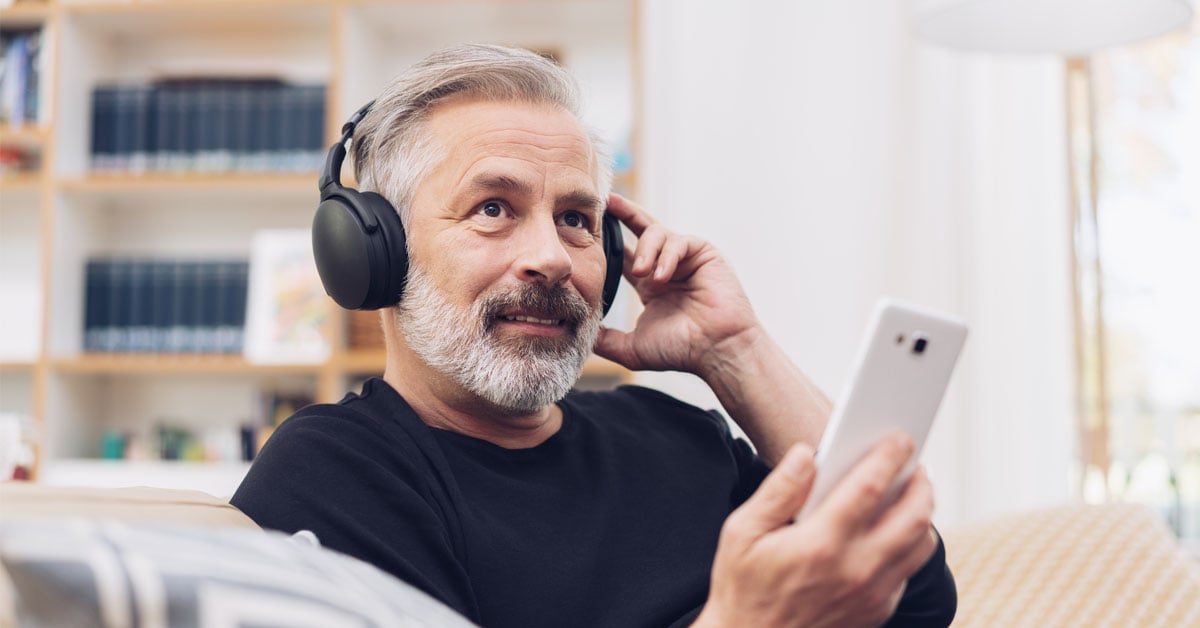
When we think of the overall picture of our well-being, hearing isn’t always the first thing to rise to the top of mind. But listen up, because you’ll want to hear this: over 48 million Americans experience some sort of hearing loss in one or both of their ears and in most cases, the damage cannot be reversed.
But it’s not all doom and gloom! There are some simple things you can immediately implement in your day-to-day that can keep your ears in prime listening shape for years to come. But before we can dive into solutions, we must first better understand the problem.
The three types of hearing loss
There are three kinds of hearing loss: sensorineural (damage to the auditory nerve or cilia in the inner ear), conductive (damage to the middle or outer ear) or mixed (a combination of the two).
Sensorineural is the most common type and the one most directly linked to sound exposure, which is what we will be focusing on today.
How does sound cause sensorineural hearing loss?
For this answer, we are focusing on decibels, which is how sound is measured. Prolonged and repeated exposure to any sound higher than 85 dB can potentially cause permanent nerve damage in our inner ear, thus resulting in hearing loss.
For a point of comparison, the Centers for Disease Control and Prevention (CDC) offers this helpful guide on the decibel rating of common sources of sound:
- Whispering: 30dB
- Dishwasher: 45-65 dB
- Conversation: 65-80 dB
- Lawnmower: 80-100 dB
- Sporting event or rock concert: 94-115 dB
- Headphones at top volume: 96-100 dB
- Fireworks: 140-160 dB
But keeping our ears safe from those higher decibel sounds is actually quite simple with a few preventative measures. Today, we are sharing three easy ones you can do right away.
Adjust your devices’ volume cap
With many of us working from home, headphones can be a lifesaver for gently blocking out any new “co-workers” or “roommates” we may have picked up during these last few months. Why not take a few minutes to set a volume cap so you can minimize risk for potential hearing loss?
If you are using a device (such as a smartphone) for listening, you can go into its audio settings and create a media volume limit for headphones or Bluetooth devices. With this enabled, your volume will be unable to exceed the limit you set, so you can safely listen to your music and podcasts without the risks of cranking to top volume.
Avoid crowded, noisy places
This one might seem obvious, but it’s worth mentioning since it is an easy preventative measure once we are able to safely gather in large groups again. If you and your conversation partner must yell to make yourselves heard, your surroundings are likely too loud and can put your hearing at risk.
If you do find yourself in a place that got too loud over time (such as a restaurant or festival), move away from the sound-producing source, such as a loudspeaker. On the other hand, if you are intentionally at a loud place such as a concert, sporting event or a fireworks display, you’ll want to protect your ears. Which brings us to…
Pick up some earplugs
Remember what we said at the top of this article about sounds crossing the 85 dB mark? Luckily, earplugs are an inexpensive and effective way to protect your hearing if you are going to be exposed to loud sounds for a prolonged period of time.
Earplugs are available at any drug store and are barely visible once inserted, allowing you to enjoy louder events without fear of permanent hearing damage. Toss a few sets in your bag, locker or glove box so you always have some handy.
If you are going to be undergoing a loud task, such as mowing the lawn or operating heavy machinery, you may even want to consider earmuffs to completely cover the outer ear and offer an extra layer of protection.
The bottom line: Prolonged and repeated exposure to loud sounds can cause irreversible nerve damage, resulting in permanent hearing loss. Setting a media volume cap on your device can block out background noise without putting your hearing at risk. Stay away from noisy, crowded places when possible. Wear earplugs to loud events and keep some handy in your car, bag or locker.
